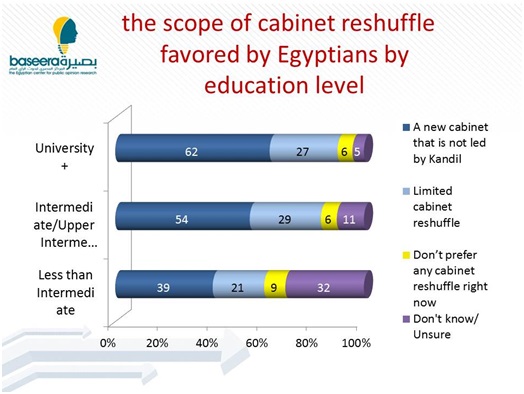CAIRO: The fertile governorate of Menufiya can claim to have contributed more to Egyptian politics than most. The birthplace of President Hosni Mubarak and former president Anwar Sadat still features many prominent candidates from the National Democratic Party (NDP) and other political parties, and is an important governorate during all elections.
This political affinity, however, has largely remained a male-dominated arena.
Dr Mona Aboul-Magd Nasser and the Alliance for Arab Women are hoping to change that. Through a program called “Mainstreaming Women’s Role in Political Reform Process, women in the governorate of Menufiya and Qaliubiya have attended educational seminars and workshops to prepare them to participate in elections and even run for local council positions.
Female participation in politics is not a recent phenomenon. Women in Egypt have had full citizenship and legal rights, including the right to vote and run for office, since 1956, and women fill positions in parliament, act as cabinet officials, and, as of 2003, have been serving as judges.
Despite these advances, some women, particularly in more rural areas, have had difficulty exercising their political rights. Of the more than 35 million female citizens of Egypt, only nine million were registered to vote in 2005 according to the 2006 State Information Service Yearbook. Many women do not possess the official documentation that would allow them to vote, and still more are simply unaware of the political situation and their rights.
The tide has been slowly turning though. Since the program began in January of 2007, the Alliance for Arab women has helped 2000 women in Menufiya obtain identification cards that will permit them to vote in the next election, and it plans to distribute 500 more cards before the program’s end. The number of women seeking elected positions has also increased nearly threefold, and, Nasser promised, this is only the beginning for these 140 women.
“They believe that they can make any change in their own communities, that they can confront and face any problems they have, Nasser said. “There are many things to be done, not only in this election but in the long run to prepare themselves for parliamentary elections.
While formal participation in politics may be increasing in more rural areas, it is the civil political movements in urban areas that are truly benefiting from female participation according to Engi Haddad.
Haddad, a political activist and participant in Shayfenko (We re Watching You), an organization that monitored the 2005 presidential elections, has been working alongside these women activists and has watched the movement grow in recent years.
“We get more and more volunteers that are women. There is that excitement – there is a new crop of women coming in, Haddad said.
These new members are not necessarily the young, ideal-driven activists who typically fuel such movements either. Haddad said that while the new participants are often from the same middle-to-upper economic class, women in all positions are now joining civil movements.
“We’ve seen housewives who are now pledging their time, businesswomen asking what they can do, and quite influential women are getting involved as well, Haddad said.
Haddad explained that many of these women join because they want a better future for their children. Most women decided to take action due to one specific incident – something they saw on TV that angered them, or when their children told them that they wanted to emigrate from Egypt, Haddad said.
Still, participation in politics, even on an informal level, isn’t always simple.
There is often a stigma attached with female political participation that is difficult to overcome, even for women who are well-educated and financially comfortable. Haddad explained that family members often try to discourage women from taking action, and some women have been harassed for their efforts.
“Society itself is the main obstacle for women, Haddad said. “It’s a cultural fear that you have in Egypt and if anyone stands up against it they have to pay the price.
This may be why some argue that women’s political participation has decreased in recent years. Though Haddad and Kamel believe that women are becoming increasingly active in grassroots politics, journalist and online blogger Nora Younis said that in some cases female political participation has been declining.
Younis explained that not only are people participating less in general, but women activists have been particularly scarcer. The younger generation of bloggers is now sticking to the web instead of taking to the streets, deterred by a “discouraging political environment, she said.
“The younger women who don’t have previous political experience, who are not frustrated, who are fresh, I think those are not participating like before, Younis said.
Women were sexually harassed during demonstrations in 2005 and recently Israa Abdel Fattah, who called for a strike on April 6 through Facebook, was detained for few weeks. Though, as Younis suggested, the political climate may not yet be ideal for women, there are still women like Younis, Haddad, and Nasser who continue to remain active nonetheless. And, in villages and towns of Menufiya, there are now 2,000 women newly armed with identification cards, ready to vote in the next election.

